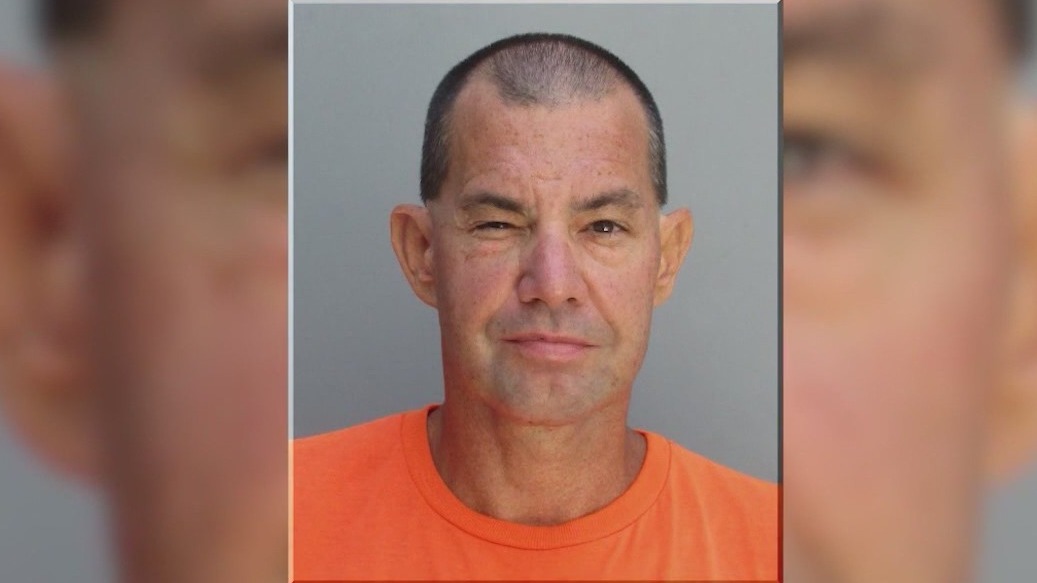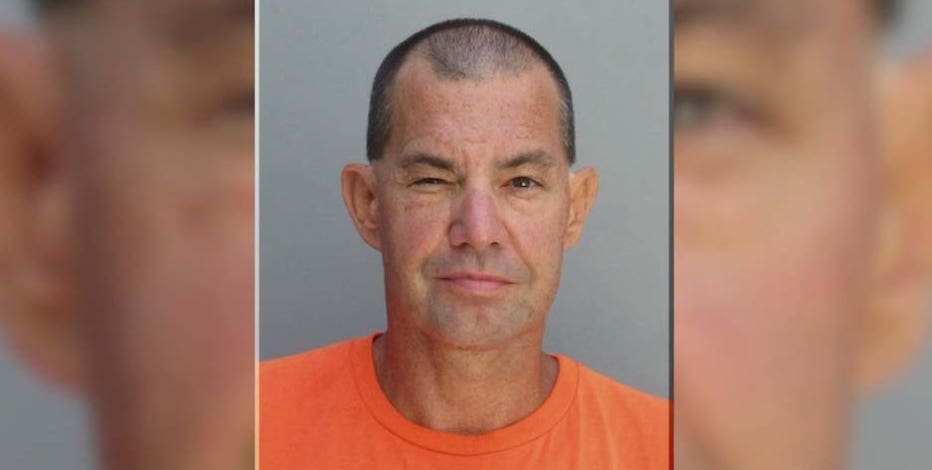Arizona governor blasted for plans to defy execution order

Arizona governor blasted for plans to defy execution order
The family of a death row inmate's victim is speaking out against Governor Katie Hobbs over her decision to put a stop to executions in Arizona.
PHOENIX (AP) - Arizona Gov. Katie Hobbs is facing heavy pushback from a victim’s sister and a powerful county prosecutor for her plans to defy a court order to execute a prisoner next month for his conviction in a 2002 killing.
The newly elected Democratic governor vowed weeks ago that she wouldn’t carry out the Arizona Supreme Court’s order to execute Aaron Gunches on April 6, citing a review that she has ordered of death penalty protocols due to Arizona’s history of mismanaging executions.
Hobbs has said executions will not be carried out until Arizonans can be confident the state isn’t violating the law. She maintains that while the court authorized Gunches’ execution, its order doesn’t require the state to carry it out.
Over the last several days, lawyers for Karen Price, whose brother Ted Price was the victim in Gunches’ case, and Maricopa County Attorney Rachel Mitchell have told the state’s highest court that Hobbs doesn’t have the legal authority to disregard the order.
In a statement, Karen Price said the relief her family felt when the court scheduled Gunches’ execution was dashed by Hobbs’ announcement.
"Not only has our family been victimized by inmate Gunches and the emotional aftermath of Ted’s murder, we are now being victimized by the governor’s failure to recognize and uphold our constitutional rights to justice and finality," Price said.
Nicholas Klingerman, an attorney representing Mitchell, said no constitutional violations have been found with the state’s execution protocols and that carrying out execution warrants isn’t optional for the governor.
"Nothing in the Constitution or laws of Arizona or the warrant gives the governor discretion to ignore the warrant and grant what essentially constitutes a temporary reprieve from the death penalty," Klingerman wrote.
Hobbs’ office has declined to comment on the filings by Price and Mitchell and their claims the governor doesn’t have legal power to defy an order to execute a prisoner.
‘It’s frustrating’

‘It’s frustrating’: Loved ones of murder victim upset by Gov. Hobbs defying execution warrant
In November 2002, Ted Price was kidnapped, shot and murdered. His body was dumped in the desert near Mesa, and his family has been waiting more than two decades years for Gunches? sentence to be carried out.
In November 2002, Ted Price was kidnapped, shot and murdered. His body was dumped in the desert near Mesa, and his family has been waiting more than two decades years for Gunches’ sentence to be carried out.
"Effectively, the governor has granted a reprieve. A reprieve is the temporary stopping of it, and that’s what she’s done, so it’s frustrating," Price said.
Hobbs is skeptical about the state’s ability to carry out the lethal injection process and has suspended all executions while a review of the state’s protocols is conducted.
"I certainly understand the need for justice for the Price family. We are focused on insuring that we can carry out this execution if required to. Right now we have serious concerns about our ability to do that," Hobbs said.
Price furthers her point.
"If the state supreme court had not issued a warrant of execution, she could’ve chosen to pause. But they issued it. She attempts to pause after, so that’s the issue," she said.
Price’s family is now awaiting a decision from the Arizona Supreme Court.
When Hobbs was asked if she would follow a mandate to carry out the execution in April, her response was, "I can’t answer a hypothetical … We’re waiting just like everyone on their ruling."

Gov. Katie Hobbs vows not to carry out execution of Aaron Gunches
The vow made by Gov. Hobbs comes just a week after she appointed a retired U.S. judge to examine the state’s procurement of lethal injection drugs and other death penalty protocols, due to the state’s history of mismanaging executions. FOX 10's Stephanie Bennett reports.
Richard Dieter, executive director of the Death Penalty Information Center, said he believes Hobbs, as the state’s chief executive, has the power to put the brakes on executions if she is concerned whether they are going to be carried out humanely and in a constitutionally sound manner. He said he doesn’t believe the courts can force Hobbs to carry out the execution.
"She has the power to make sure that that’s functioning properly," said Dieter, whose group doesn’t take a position on the death penalty but is critical on how it’s carried out.
Dale Baich, a former federal public defender who teaches death penalty law at Arizona State University, said Hobbs has "discretion for situations like this, where the governor has expressed legitimate concerns because of the problems with the (lethal injection) drugs, the qualifications of the executioners and staffing at the Department of Corrections necessary to carry out executions."
Mel McDonald, a former U.S. Attorney for Arizona who handled two death row cases as a prosecutor, predicted the state Supreme Court would take up the appeal filed by Price’s sister, saying the dispute presents the court with novel legal issues.
"It raises a lot of questions," McDonald said of the dispute. "I wouldn’t be surprised if they accept jurisdiction (of the case). Where it goes from there is anyone’s guess."
Arizona, which currently has 110 prisoners on death row, carried out three executions last year after a nearly eight-year hiatus brought on by criticism that a 2014 execution was botched and because of difficulties obtaining execution drugs.
Since resuming executions, the state was criticized in May for taking too long to insert an IV for lethal injection into a condemned prisoner’s body.
Gunches was sentenced to death after pleading guilty to murder in the shooting death of Ted Price, his girlfriend’s ex-husband, near Mesa, Arizona.
Gunches, who isn’t a lawyer, represented himself in November when he asked the Supreme Court to issue his execution warrant so, he said, that justice could be served and the victims could get closure. In Republican Attorney General Mark Brnovich’s last month in office, his office asked the court for a warrant to execute Gunches.
But Gunches then withdrew his request in early January, and newly elected Democratic Attorney General Kris Mayes later asked for the execution warrant submitted during Brnovich’s tenure to be withdrawn.
The state Supreme Court rejected Mayes’ request, saying it must grant an execution warrant if certain appellate proceedings have concluded — and that those requirements were met in Gunches’ case.
In yet another reversal, Gunches said in a filing a week ago that he still wants to be executed and asked to be transferred to Texas, where he wrote "the law is still followed and inmates can still get their sentences carried out."
Arizona’s highest court has since denied Gunches’ request to transfer to Texas.



